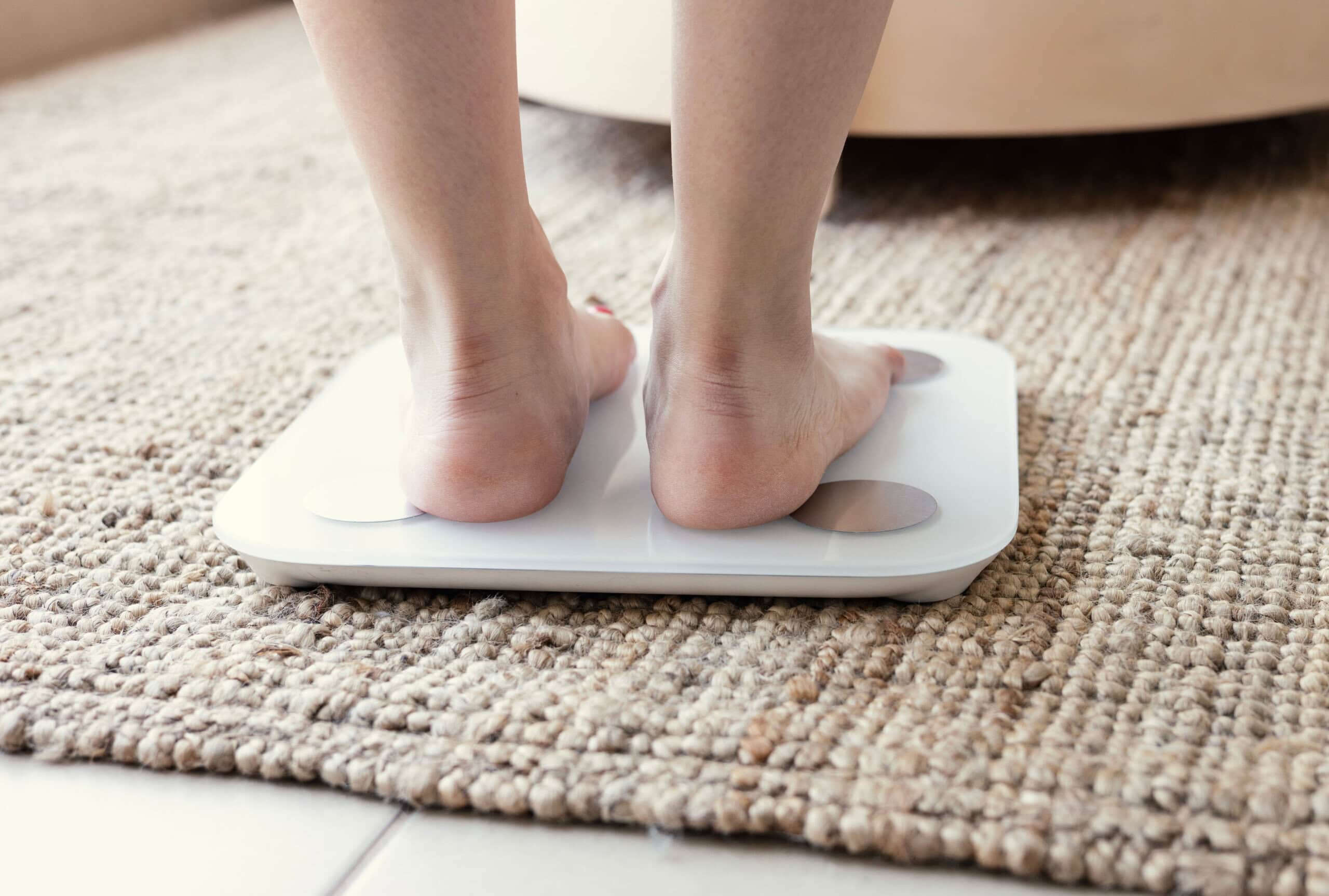5 Ways To Improve Gut Health
We often hear phrases like ‘go with your gut’, ‘spill your guts’, ‘no guts, no glory’, but what’s so important about our gut anyway? A healthy gut microbiome is essential for your body and mind to flourish, so it’s about time we learned ways to improve our gut, not just for the glory, but for our health.
What is the gut microbiome?
There are trillions of viruses, fungi and bacteria (otherwise known as microbes) in your body, and they are collectively known as the microbiome. While some may be linked to disease and illness, the majority are essential for helping keep your immune system, heart, and gut healthy.
In your gut microbiome alone, there are up to one thousand different species of bacteria which can be found mostly in your large intestine. Your gut microbiome affects your body from the moment you’re born, and diversifies as you grow.[1][2] High microbiome diversity is considered good for your health, and a healthy gut means that there are more good bacteria than harmful bacteria.
Why is a healthy gut important?
Studies have shown time and time again that an unhealthy gut microbiome, and the ‘Western diet’ in general, have strong associations with a wide range of diseases, including obesity, metabolic syndrome, type 2 diabetes and cardiovascular disease.[3] However, the Mediterranean diet which supports a healthy gut is considered the healthiest option, associated with the prevention of many of these diseases.[4]
Having a healthy gut microbiome has a range of benefits to the entire body, it:
- Benefits heart health [5]
- Controls brain health and the central nervous system [6]
- Can help regulate anxiety, mood and pain [7]
- Improves your immune system [8]
- Helps control blood sugars, which can help lower the risk of type 2 diabetes [9]
5 ways to improve gut health
Broaden your diet
As we said, a diverse microbiome is a happy microbiome, and broadening your diet is a great way to diversify the good bacteria in your gut.[10] Specifically, a Mediterranean diet has been shown to modulate gut microbiota, and increase its diversity, leading to the prevention of chronic illness such as cardiovascular diseases and some types of cancer.[11] Introduce new non-starchy vegetables, healthy fats, legumes and meats to your diet, while steering clear of harmful processed foods.
Following our Online Programme will give you plenty of ideas for delicious, healthy ingredients and new recipes that are ideal for diversifying your microbiome and reaping all the benefits that a Mediterranean diet can give your gut health.
Add more fibre to your day
Fibre is digested by certain bacteria, which may help to prevent weight gain and chronic illnesses like type 2 diabetes, some cancers, and heart disease.[12][13] Try adding foods which are high in fibre to your diet, such as broccoli, chickpeas, asparagus, and small amounts of fruits like raspberries.
The ideal Mediterranean diet is high in beneficial fibres and low in starchy vegetables so it’s important to find the right foods for the job. Check out our Online Programme if you need help knowing what’s what, or to get you started, try out our high fibre recipes such as a delicious Saag with Chickpeas or Baked Aubergine with Miso.
Increase your intake of probiotics and prebiotics
Prebiotics are foods that promote the growth of beneficial bacteria in your gut, like fibre and carbohydrates which the human body cannot digest without certain species of gut bacteria. Certain prebiotics have been shown to reduce insulin, triglyceride and cholesterol levels in people with obesity, and can also help prevent conditions like heart disease and type 2 diabetes.[14][15] Prebiotic foods include onion, garlic, Jerusalem artichokes, leeks and asparagus.
Probiotics are living microorganisms, usually bacteria, that can be consumed to provide health benefits such as supporting your metabolism, preventing bowel diseases, improving the immune system and more.[16] Probiotics are found in fermented foods, which leads us to our next way to improve gut health…
Eat fermented foods
Fermented foods, such as yoghurt, kimchi, kombucha, kefir and sauerkraut all contain healthy bacteria, such as various strains of ‘Lactobacilli’. This can reduce the amount of disease-causing bacteria in the gut.[17] Studies show that people who eat plenty of yogurt, such as Greek yogurt (which we’re a big fan of!), appear to have less of the harmful bacteria that are associated with inflammation and a number of chronic conditions. They may not sound appetising, but we include fermented foods in some of our recipes in our Online Programme, to show just how delicious they can be!
Get more sleep
Improving your sleep hygiene and getting more rest has been shown to result in a healthier gut microbiome, while sleep deprivation has been linked to negative gut health composition.[19]
To summarise, there are plenty of ways to improve gut health, which is fast becoming a more widely known aspect of good health. If you’re looking to improve your overall health but are unsure where to start, our Online Programme is a great place. With delicious recipes, exercise courses, mindfulness guides and more, The Fast 800 can put you on the right track, and keep you there.
Aagaard K, et al. The placenta harbors a unique microbiome. Sci Transl Med. 2014 May 21;6(237):237ra65. doi: 10.1126/scitranslmed.3008599. PMID: 24848255; PMCID: PMC4929217.
Bäckhed F, Roswall J, et al. Dynamics and Stabilization of the Human Gut Microbiome during the First Year of Life. Cell Host Microbe. 2015 May 13;17(5):690-703. doi: 10.1016/j.chom.2015.04.004. Erratum in: Cell Host Microbe. 2015 Jun 10;17(6):852. Jun, Wang [corrected to Wang, Jun]. Erratum in: Cell Host Microbe. 2015 Jun 10;17(6):852. PMID: 25974306.
Nagpal R, Shively CA, Register TC, Craft S, Yadav H. Gut microbiome-Mediterranean diet interactions in improving host health. F1000Res. 2019 May 21;8:699. doi: 10.12688/f1000research.18992.1. PMID: 32704349; PMCID: PMC7359750.
As above
Aron-Wisnewsky J, Clément K. The gut microbiome, diet, and links to cardiometabolic and chronic disorders. Nat Rev Nephrol. 2016 Mar;12(3):169-81. doi: 10.1038/nrneph.2015.191. Epub 2015 Nov 30. PMID: 26616538.
Cryan JF, Dinan TG. Mind-altering microorganisms: the impact of the gut microbiota on brain and behaviour. Nat Rev Neurosci. 2012 Oct;13(10):701-12. doi: 10.1038/nrn3346. Epub 2012 Sep 12. PMID: 22968153.
Cryan JF, Dinan TG. Mind-altering microorganisms: the impact of the gut microbiota on brain and behaviour. Nat Rev Neurosci. 2012 Oct;13(10):701-12. doi: 10.1038/nrn3346. Epub 2012 Sep 12. PMID: 22968153.
Rooks MG, Garrett WS. Gut microbiota, metabolites and host immunity. Nat Rev Immunol. 2016 May 27;16(6):341-52. doi: 10.1038/nri.2016.42. PMID: 27231050; PMCID: PMC5541232.
Zeevi D, Korem T, Zmora N, Israeli D, Rothschild D, Weinberger A, Ben-Yacov O, Lador D, Avnit-Sagi T, Lotan-Pompan M, Suez J, Mahdi JA, Matot E, Malka G, Kosower N, Rein M, Zilberman-Schapira G, Dohnalová L, Pevsner-Fischer M, Bikovsky R, Halpern Z, Elinav E, Segal E. Personalized Nutrition by Prediction of Glycemic Responses. Cell. 2015 Nov 19;163(5):1079-1094. doi: 10.1016/j.cell.2015.11.001. PMID: 26590418.
Heiman ML, Greenway FL. A healthy gastrointestinal microbiome is dependent on dietary diversity. Mol Metab. 2016 Mar 5;5(5):317-320. doi: 10.1016/j.molmet.2016.02.005. PMID: 27110483; PMCID: PMC4837298.
Merra G, Noce A, Marrone G, Cintoni M, Tarsitano MG, Capacci A, De Lorenzo A. Influence of Mediterranean Diet on Human Gut Microbiota. Nutrients. 2020 Dec 22;13(1):7. doi: 10.3390/nu13010007. PMID: 33375042; PMCID: PMC7822000.
InterAct Consortium. Dietary fibre and incidence of type 2 diabetes in eight European countries: the EPIC-InterAct Study and a meta-analysis of prospective studies. Diabetologia. 2015 Jul;58(7):1394-408. doi: 10.1007/s00125-015-3585-9. Epub 2015 May 29. PMID: 26021487; PMCID: PMC4472947.
Slavin J. Fiber and prebiotics: mechanisms and health benefits. Nutrients. 2013 Apr 22;5(4):1417-35. doi: 10.3390/nu5041417. PMID: 23609775; PMCID: PMC3705355.
Beserra BT, Fernandes R, do Rosario VA, Mocellin MC, Kuntz MG, Trindade EB. A systematic review and meta-analysis of the prebiotics and synbiotics effects on glycaemia, insulin concentrations and lipid parameters in adult patients with overweight or obesity. Clin Nutr. 2015 Oct;34(5):845-58. doi: 10.1016/j.clnu.2014.10.004. Epub 2014 Oct 20. PMID: 25456608.
Sharma S, Puri S. Prebiotics and Lipid Metabolism: A Review. Altern Ther Health Med. 2015 Aug;21 Suppl 3:34-42. PMID: 26348612.
Shi LH, Balakrishnan K, Thiagarajah K, Mohd Ismail NI, Yin OS. Beneficial Properties of Probiotics. Trop Life Sci Res. 2016 Aug;27(2):73-90. doi: 10.21315/tlsr2016.27.2.6. PMID: 27688852; PMCID: PMC5031164.
Alvaro E, Andrieux C, Rochet V, Rigottier-Gois L, Lepercq P, Sutren M, Galan P, Duval Y, Juste C, Doré J. Composition and metabolism of the intestinal microbiota in consumers and non-consumers of yogurt. Br J Nutr. 2007 Jan;97(1):126-33. doi: 10.1017/S0007114507243065. PMID: 17217568.
Lisko DJ, Johnston GP, Johnston CG. Effects of Dietary Yogurt on the Healthy Human Gastrointestinal (GI) Microbiome. Microorganisms. 2017 Feb 15;5(1):6. doi: 10.3390/microorganisms5010006. PMID: 28212267; PMCID: PMC5374383.
Smith RP, Easson C, Lyle SM, Kapoor R, Donnelly CP, Davidson EJ, Parikh E, Lopez JV, Tartar JL. Gut microbiome diversity is associated with sleep physiology in humans. PLoS One. 2019 Oct 7;14(10):e0222394. doi: 10.1371/journal.pone.0222394. PMID: 31589627; PMCID: PMC6779243.









